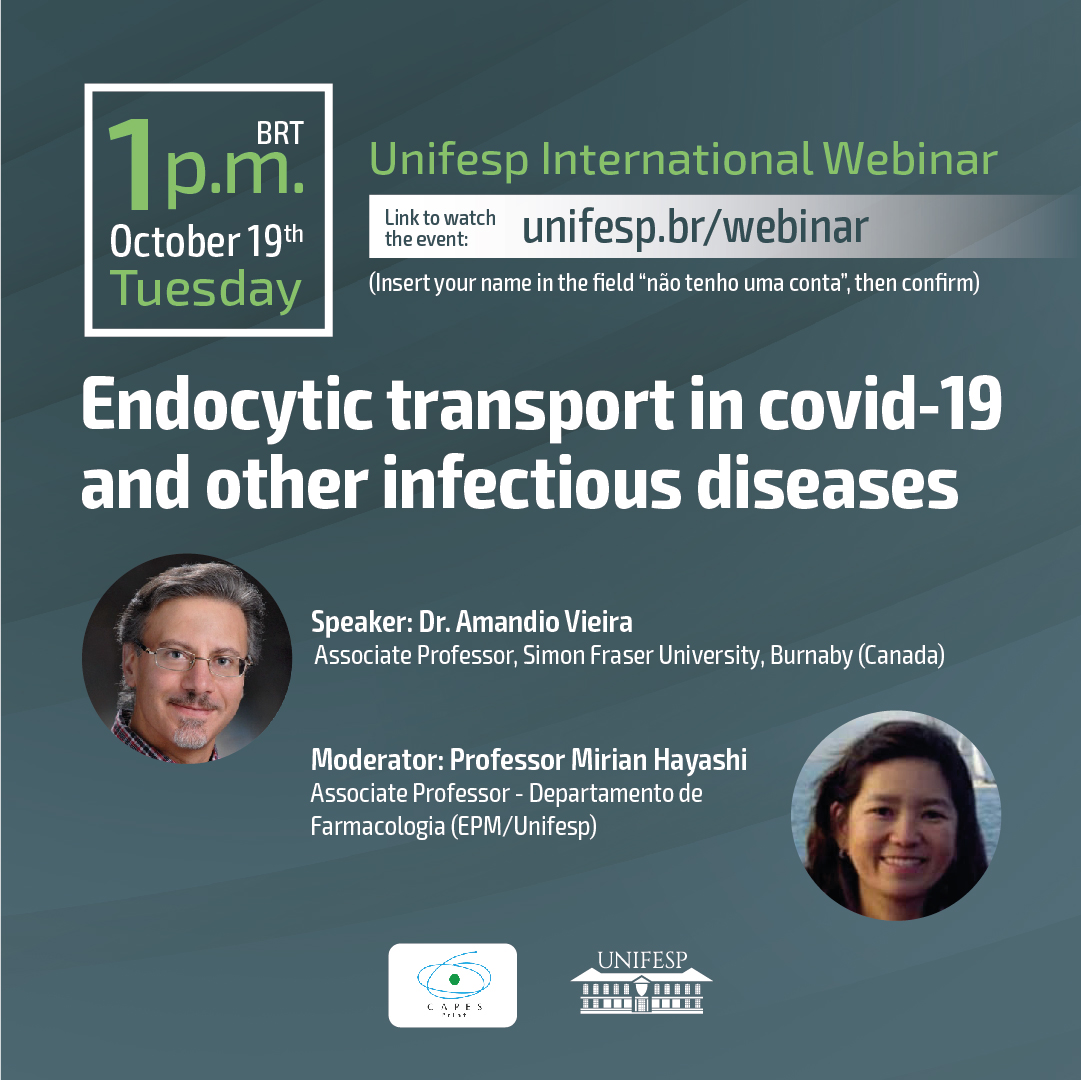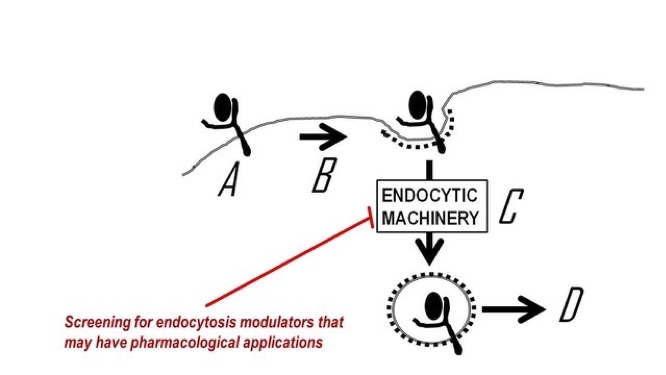On October, 19, at 1 pm

Speaker: Associate Professor, Nutrition and Metabolic Research Laboratory, Department of Biomedical Physiology BPK, Simon Fraser University, Burnaby, B.C., Canada
Moderator: Mirian Hayashi, PhD, Associate Professor, Department of Pharmacology, Escola Paulista de Medicina - Unifesp
Endocytosis of a microbial pathogen is a typical pathological process in most infectious diseases. Viruses, bacteria, and parasites are internalized by the host cell as part of the initiation and progression of infectious diseases. There is evidence that disruption of such microbe entry can interfere with the normal infection cycle. Pharmacological agents that disrupt endocytosis of the pathogen may, thus, be therapeutically useful in some infectious diseases. Current research on the screening and identification of endocytic transport disruptors and their possible application to Covid-19 and other viral diseases will be presented. Possible therapeutic compounds that have been identified to date include some natural products (e.g., flavonoids) as well as previously approved drugs (i.e., drug repurposing).
For registration: click here
Link to watch the event: unifesp.br/webinar (Enter your name in "Não tenho uma conta", then confirm)
Speaker further information can be found at: link
In general, Dr Amandio is interested in the structure and function of biological systems at different levels. In terms of basic research, I and other members of my group study molecular and cellular mechanism of physiological regulation, e.g., biological transport and signaling, genetic and epigenetic control. In much of our work, we develop these interests in the context of nutrition and metabolism: endocytic transport of nutrients, nutritional epigenetics, transport-function relations of hormones and other regulatory/metabolic factors.
He also research some of these topics in more of an applied context. Basic work on biological transport and transport proteins is also considered in a pathological or therapeutic perspective: basic studies on the endocytic transport of vitamins A, D, and other nutrients, for example, can contribute to a better understanding of the modulation of such transport in cancer cells, or more generally to the identification of pharmaco-modulators of the transport process. One of the nutrient/hormone transport proteins that we study, transthyretin, is also a factor in some amyloidogenic neurodegenerative diseases; its related cellular toxicity mechanisms are being investigated by our group. Another area of interest is that of dietary phytochemicals and human health, e.g., how they contribute to health and longevity, antioxidant activities, and how they may impact pathological processes involved in cancer, cardiovascular, neurodegenerative and other chronic diseases.


